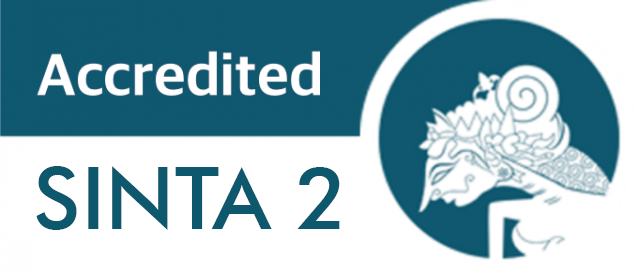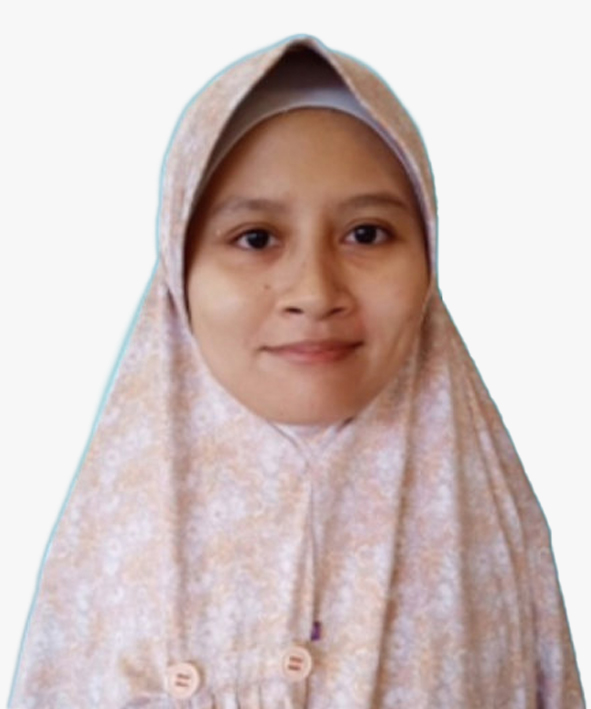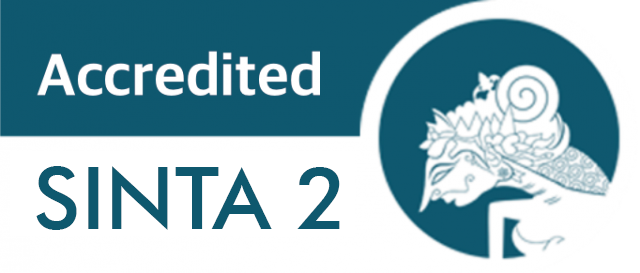Assessment of Behavioral, Social and Emotional Skills in Medical Students: A Strategy to Improve Mental Health
Introduction: Students during college face important phases in their lives, have greater responsibilities, and are required to improve their skills. Of the various types of skills, social skills have a large impact on mental health. This study aimed to determine the behavioral, emotional, and social skills among medical students in South Sumatra, Indonesia. Methods: This study is observational with a cross-sectional design. The participants were all students of the Faculty of Medicine in South Sumatra. Descriptive analysis was conducted by presenting the BESSI-45 score data in the median value. Results: The number of participants was 702 people, 74,9% female, 17-26 years old, 83,5% lived in South Sumatra, 3,4% had a history of mental disorder, and 4,3% had a history of mental disorders in their family. The largest median value of 73.33 is in the cooperation skills domain, followed by the median value of 71.11 in the self-management domain. The innovation skills and social engagement domains have the lowest median value of 62.22. It was found that 364 participants (51.9%) had scores below the median, while 338 participants (48.1%) had scores above the median. Conclusions: The study concluded that the majority of medical students in South Sumatra exhibit moderate levels of behavioral, emotional, and social skills, with the highest scores in cooperation and self-management domains. However, innovation skills and social engagement were identified as areas needing improvement. These findings highlight the need for targeted interventions to enhance the overall social and emotional well-being of medical students.
Introduction
The college period is one of the most important phases in a person’s life, as it is also referred to as the transition period from adolescence to adulthood. This period is accompanied by increased responsibilities for an individual. For most students, college is a phase filled with trials and reflections. This transition period is known by the term ‘emerging adulthood’, which is a unique developmental stage characterized by a period of significant change and exploration that marks the beginning of one’s efforts to define their future life, whether in terms of occupation, life partner, or other major aspects[1][2].
Students who are in the period of ‘emerging adulthood’ are faced with various career and personal life possibilities. In this phase of life, they are required to make decisions and prepare for their future careers, occupational, educational, and financial matters, which are the main focus of adult life [3]. This phase renders students vulnerable to psychological issues such as anxiety and depression due to the necessity of adapting to a new environment, being apart from family, and engaging in autonomous learning. Many previous studies have suggested a high prevalence of mental-emotional problems in the college student population. A recent study revealed that the prevalence of depressive symptoms in medical students was higher than the prevalence of depressive symptoms in the general population [4]. The prevalence of anxiety symptoms in medical students is also quite high.Basedd on a meta-analysis, the prevalence of anxiety symptoms in medical students worldwide ranged from 29.2% to 38.7%. This number is also higher than the general population, which is 3% [5][6]. Another study on the prevalence of anxiety symptoms in medical students in Indonesia showed higher results, with a prevalence of 45-47%. Some contributing factors are the burden of education and the learning process, lack of rest time, financial burden, exposure to patients and death, and bullying [7][8][9][10].
During college, apart from mastering cognitive abilities, students are also required to have social skills. Social skills are identified as one of the supporting factors in academic success and thus affect various aspects of students’ lives, such as personal, social, and professional [11 ][12].Students need to develop values that support healthy personal development, such as confidence, eagerness to learn new skills, healthy social relationships, ability to control emotions, optimistic thinking, and being involved in various academic and non-academic activities[13][14]. Social skills are functional capacities and abilities that are acquired and developed through practice and effort. These skills are functional and plastic, meaning the skills are manifested in behavior when the situation requires a person to act[11][13][15][16][17]. Therefore, social skills become crucial at this stage to maximize their potential and support the transition from college into adulthood. As mental health and social skills are equally important in the development of emerging adulthood, the relationship between the two has been elucidated by several previous studies. Some studies suggest that social skills and symptoms of depression and anxiety are negatively correlated; hence, the lower one's social skills, the more likely one is to experience symptoms of depression and anxiety[11][13][15]. This study aimed to determine the behavioral and emotional-social skills as measured by The Behavioral, Emotional and Social Skills Inventory (The BESSI-45) questionnaire among medical students in South Sumatra, Indonesia.
Methods
Participants and procedure
This study was an observational study with a cross-sectional design. The participants of the study were all students of the Faculty of Medicine in South Sumatra, from the Faculty of Medicine of Sriwijaya University, and Muhammadiyah University Palembang, who were willing to take part in the study by signing an informed consent form. This study lasted for 8 months and began after obtaining ethical approval from the ethics committee of the Faculty of Medicine of Sriwijaya University and Muhammadiyah University Palembang. Upon receiving an explanation and completing the consent form, participants completed The BESSI-45 questionnaire using a Google Drive link. The questionnaires were distributed anonymously, and the data were stored in a database that could only be accessed by the research team.
Instruments
The BESSI-45
The Behavioural, Emotional, and Social Skills Inventory (The BESSI-45) is an instrument that measures social, emotional, and behavioral skills in a comprehensive, valid, and efficient. This instrument measures five main skills domains; self-management skills, social engagement skills, cooperation skills, emotional resilience skills, and innovation skills. Each BESSI item describes a specific behavior that is relevant to a particular skill. Participants will rate how well they perform the behavior. The overall results are then averaged to measure these five key skill domains[18].
Data analysis procedure
The collected data were analyzed by Statistical Product and Service Solutions (SPSS). Descriptive analysis was conducted by presenting the BESSI-45 score data in the mean or median value according to normality tests.
Results
The number of participants in this study was 702 people, as perTable 1. The majority of the participants were female, accounting for 526 people (74.9%), from the Faculty of Medicine, Sriwijaya University, with a total of 411 people (58.5%). The participants were in the range of 17-26 years, with 586 (83.5%) of them living in South Sumatra. 24 (3.4%) participants out of a total of 702 participants exhibited mental disorders. Out of a total of 702 participants, 24 (3.4%) of them reported having a history of mental disorders. Thirty participants (4.3%) reported a
Brito AD, Soares AB. Well-being, Character strengths and depression in emerging adults. Front Psychol. 2023;14: 1-12. https://doi.org/10.3389/fpsyg.2023.1238105.
Halliburton AE, Hill MB, Dawson BL, Hightower JM, Rueden H. Increased stress, declining mental health: Emerging adults’ experiences in college during COVID-19. Emerging Adulthood. 2021;9(5):433–48. https://doi.org/10.1177/2167696821102534
Matud MP, Diaz A, Bethencourt JM, Ibanez I . Stress and Psychological Distress in Emerging Adulthood: Gender Analysis. J Clin Med. 2020;9(9):289. https://doi.org/10.3390/jcm9092859.
Mirza AA, Baig M, Beyari GM, Halawani MA, Mirza AA. Depression and Anxiety among Medical Students: A Brief Overview. Adv Med Educ Pract. 2021;12:393-8. https://doi.org/10.2147/AMEP.S302897.
Tian-Ci Quek T, Wai-San Tam W, X. Tran B, Zhang M, Zhang Z, Su-Hui Ho C, et al. The global prevalence of anxiety among medical students: a meta-analysis. Int J Environ Res Public Health. 2019;16(15):2735. https://doi.org/10.3390/ijerph16152735.
Ramadianto AS, Kusumadewi I, Agiananda F, Raharjanti NW. Symptoms of depression and anxiety in Indonesian medical students: association with coping strategy and resilience. BMC Psychiatry. 2022;22(1):92. https://doi.org/10.1186/s12888-022-03745-1.
Arisyna A, Sustini F, Muhdi N. Anxiety level and risk factors in medical students. JUXTA: Jurnal Ilmiah Mahasiswa Kedokteran Universitas Airlangga. 2020;11(2):79. https://doi.org/10.20473/juxta.V11I22020.79-82.
Liu Y, Zhang N, Bao G, Huang Y, Ji B, Wu Y, et al. Predictors of depressive symptoms in college students: A systematic review and meta-analysis of cohort studies. J Affect Disord. 2019;244:196–208. https://doi.org/10.1016/j.jad.2018.10.084.
Asif S, Mudassar A, Shahzad TZ, Raouf M, Pervaiz T. Frequency of depression, anxiety and stress among university students. Pak J Med Sci. 2020;36(5):971. https://doi.org/10.12669/pjms.36.5.1873.
Raja S, Balasubramnian G, Rani RJ. Prevalence of Depression, Anxiety, and Stress Among Private Medical College Students in South India: A Cross Sectional Study. J Educ Health Promot. 2022;11:373. https://doi.org/10.4103/jehp.jehp_393_22.
Soto CJ, Napolitano CM, Sewell MN, Yoon HJ, Roberts BW. An integrative framework for conceptualizing and assessing social, emotional, and behavioral skills: The BESSI. J Pers Soc Psychol. 2022;123(1):192. https://doi.org/10.1037/pspp0000401.
Li X, He E, Zhao X. An empirical study of the effects of social-emotional competence on Chinese college students’ interpersonal relationship circles from a relational theory perspective. Learn Cult Soc Interact. 2024;47:100824. https://doi.org/10.1016/j.lcsi.2024.100824
Gamage, K. A. A., Dehideniya, D., & Ekanayake, S. Y. (2021). The role of personal values in learning approaches and student achievements. Behavioral Sciences, 11(7), 102. https://doi.org/10.3390/bs11070102
Saeedi G, Hosseini M, Nasiri M, Vasli P. The effect of social skills-based blended education on social adjustment, self-esteem and social skills among new nursing students: An experimental study. Nurse Educ Today. 2024;143:106362. https://doi.org/10.1016/j.nedt.2024.106362
Napolitano CM, Sewell MN, Yoon HJ, Soto CJ, Roberts BW. Social, emotional, and behavioral skills: An integrative model of the skills associated with success during adolescence and across the life span. In: Frontiers in Education. Frontiers Media SA; 2021. p. 679561. https://doi.org/10.3389/feduc.2021.679561.
Copeland, M. (2021). The long shadow of peers: Adolescent networks and young adult mental health. Social Sciences, 10(6), 231. https://doi.org/10.3390/socsci10060231
Kupferberg, A., & Hasler, G. (2023). The social cost of depression: Investigating the impact of impaired social emotion regulation, social cognition, and interpersonal behavior on social functioning. Journal of Affective Disorders Reports, https://doi.org/10.1016/j.jadr.2023.100631
Soto CJ, Napolitano CM, Sewell MN, Yoon HJ, Murano D, Casillas A, et al. What I Do and What I Can Do: Testing the convergence and incremental validity of social, emotional, and behavioral skills vs. traits for predicting academic success. J Res Pers. https://doi.org/ 10.1016/j.jrp.2023.104382.
Yoon HJ, Roberts BW, Sewell MN, Napolitano CM, Soto CJ, Murano D, et al. Examining SEB skills’ incremental validity over personality traits in predicting academic achievement. PLoS One. 2024;19(1):e0296484. https://doi.org/10.1371/journal.pone.0296484.
Ruiz de Azua S, Ozamiz-Etxebarria N, Ortiz-Jauregui MA, Gonzalez-Pinto A. Communicative and social skills among medical students in Spain: a descriptive analysis. Int J Environ Res Public Health. 2020;17(4):1408. https://doi.org/ 10.3390/ijerph17041408.
de Almeida Santos, Z., & Benevides Soares, A. (2020). The impact of social skills and coping strategies on problem solving in psychology university students. Ciencias Psicológicas, 14(2). https://doi.org/10.22235/cp.v14i2.2228
Shrivastava, S., Martinez, J., Coletti, D. J., & Fornari, A. (2022). Interprofessional leadership development: Role of emotional intelligence and communication skills training. MedEdPORTAL, 18, 11247. https://doi.org/10.15766/mep_2374-8265.11247
Horne MJ, Allbright M, D’Nea AG, Patel A. Emotional Intelligence in Medicine: An Investigation of the Significance for Physicians, Residents, and Medical Students–A Systematic Review. J Surg Educ. 2024;81(12):103307. https://doi.org/10.1016/j.jsurg.2024.103307
Beatty JF, Hill PL, Spengler M. Sense of purpose and social-emotional-behavioral skills during university. Pers Individ Dif. 2025;233:112870. https://doi.org/10.1016/j.paid.2024.112870
Mroczek B, Kotwas A, Brzeźniak H, Stanisławska M, Pietrzak M, Zabielska P, et al. Social skills contributing to the behaviors of physicians, nurses, and paramedics in various professional situations. Family Medicine & Primary Care Review. 2020;22(2). http://doi.org/10.5114/fmpcr.2020.95321.
Moeller RW, Seehuus M. Loneliness as a mediator for college students’ social skills and experiences of depression and anxiety. J Adolesc. 2019;73:1–13. https://doi.org/10.1016%2Fj.adolescence.2019.03.006.
Healy, C., Ryan, Á., Moran, C. N., Harkin, D. W., Doyle, F., & Hickey, A. (2023). Medical students, mental health and the role of resilience–A cross-sectional study. Medical Teacher, 45(1), 40–48. https://doi.org/10.1080/0142159X.2022.2128735
Tolentino-Ricoy KO, Salomón-Cruz J, Puig-Lagunes ÁA. Emotional intelligence and burnout in medical students. Educación Médica. 2024;25(4):100920. https://doi.org/10.1016/j.edumed.2024.100920
Nair B, Otaki F, Nair AF, Ho SB. Medical students’ perception of resilience and of an innovative curriculum-based resilience skills building course: A participant-focused qualitative analysis. PLoS One. 2023;18(3):e0280417. https://doi.org/10.1371/journal.pone.0280417.
Ragab EA, Dafallah MA, Salih MH, Osman WN, Osman M, Miskeen E, et al. Stress and its correlates among medical students in six medical colleges: an attempt to understand the current situation. Middle East Current Psychiatry. 2021;28(1):75. https://doi.org/10.1186/s43045-021-00158-w.
Buja, L. M. (2019). Medical education today: all that glitters is not gold. BMC Medical Education, 19, 1–11. https://doi.org/10.1186/s12909-019-1535-9
Kotera Y, Lieu J, Kirkman A, Barnes K, Liu GHT, Jackson J, et al. Mental wellbeing of Indonesian students: Mean comparison with UK students and relationships with self-compassion and academic engagement. In: Healthcare. MDPI; 2022. p. 1439. https://doi.org/10.3390/healthcare10081439.
Coiado OC, Ahmad K. Introducing first-year medical students to product innovation and entrepreneurship. Med Sci Educ. 2020;30:19–20. https://doi.org/10.1007/s40670-019-00879-y.
Cheema MK, Nadeem A, Aleem M. Motivation, cognitive and resource management skills: association of self-regulated learning domains with gender, clinical transition and academic performance of undergraduate medical students. Med Sci Educ. 2019;29:79–86. https://doi.org/10.1007%2Fs40670-018-00630-z.
Kulkarni M. Time management skills among medical students. Indian J Public Health Res Dev. 2020;11(6):488–93. https://doi.org/10.37506/ijphrd.v11i6.9825.
Josephine, J., & Jones, L. (2022). Understanding the impact of generation gap on teaching and learning in medical education: a phenomenological study. Advances in Medical Education and Practice, 13, 1071. https://doi.org/10.2147/AMEP.S370304
Freitas LC, Del Prette ZAP, Del Prette A. Social distancing in the COVID-19 pandemic: notes on possible impacts on the social skills of individuals and populations. Estudos de Psicologia (Natal). 2020;25(3):253–62. https://doi.org/10.22491/1678-4669.20200026.
Imjai N, Aujirapongpan S, Jutidharabongse J, Usman B. Impacts of digital connectivity on Thailand’s Generation Z undergraduates’ social skills and emotional intelligence. Contemp Educ Technol. 2024;16(1):ep487. https://doi.org/10.30935/cedtech/14043.
She, R., han Mo, P. K., Li, J., Liu, X., Jiang, H., Chen, Y., Ma, L., & fai Lau, J. T. (2023). The double-edged sword effect of social networking use intensity on problematic social networking use among college students: The role of social skills and social anxiety. Computers in Human Behavior, 140, 107555. https://doi.org/10.1016/j.chb.2022.107555
Hinduan ZR, Anggraeni A, Agia MI. Generation Z in Indonesia: The self-driven digital. In: The New Generation Z in Asia: Dynamics, Differences, Digitalisation. Emerald Publishing Limited; 2020. p. 121–34. http:// doi.org/10.1108/978-1-80043-220-820201012.
Rizka SM, Bacotang J Bin. The relationship between parenting styles and children’s social skills. In: International conference on early childhood education. 2019. p. 258–62.
Lee K, Gleespen L. Associations between types of care and parenting practice and social-emotional development among Asian American young children. Child Youth Serv Rev. 2024;157:107359. https://doi.org/10.1016/j.childyouth.2023.107359
Sancho-Cantus D, Cubero-Plazas L, Botella Navas M, Castellano-Rioja E, Cañabate Ros M. Importance of soft skills in health sciences students and their repercussion after the Covid-19 epidemic: Scoping review. Int J Environ Res Public Health. 2023;20(6):4901. https://doi.org/10.3390%2Fijerph20064901.
Bauth, M. F., Angélico, A. P., & Oliveira, D. C. R. de. (2019). Association between social skills, sociodemographic factors and self-statements during public speaking by university students. Trends in Psychology, 27(3), 677–692. https://doi.org/10.9788/TP2019.3-06
Kim-Ju GM, Knifsend CA, Gonzales A. Putting social and emotional learning into practice: Best practices in developing and implementing an SEL program through a university-1st-8th grade partnership. Social and Emotional Learning: Research, Practice, and Policy. 2024;3:100033. https://doi.org/10.1016/j.sel.2024.100033
Wang Y, Zhang H, Hu Z, Ma Y, Sun Y, Zhang J, He Y. Perceived social support and prosocial behavior in medical students: Mediating effect of empathy and moderating role of moral identity. Acta Psychol (Amst). 2024;250:104543. https://doi.org/10.1016/j.actpsy.2024.104543
Kirkov V. The impact of the COVID-19 pandemic on the quality of higher medical education. Pharmacia. 2024;71:1–5. https://doi.org/10.3897/pharmacia.71.e128039
Copyright (c) 2025 Bintang Arroyantri Prananjaya, Latifah Nudhar, Syarifah Aini, Puji Rizki Suryani, Diyaz Syauki Ikhsan, Nicholas Tze Ping Pang, Regina Shalsabilla, Miranti Dwi Hartati

This work is licensed under a Creative Commons Attribution-ShareAlike 4.0 International License.
1. Copyright of this journal is possession of the Author, by the knowledge of the Editorial Board and Journal Manager, while the moral right of the publication belongs to the author.
2. The journal allows the author(s) to retain publishing rights without restrictions.
3. The articles are published under a Creative Commons Attribution Share-Alike (CC BY-SA) license. Many research funding bodies prefer the CC BY-SA license because it allows for maximum dissemination and re-use of open access materials. Users are free to share (copy, distribute, and transmit) and remix (adapt) the contribution under this license, including for commercial purposes, as long as they attribute the contribution in the manner specified by the author or licensor.
























